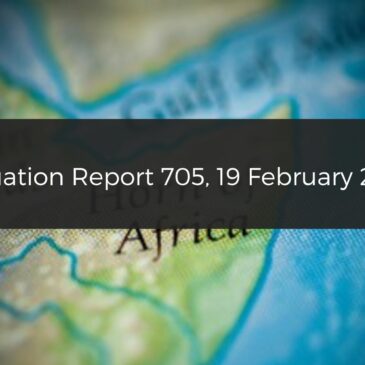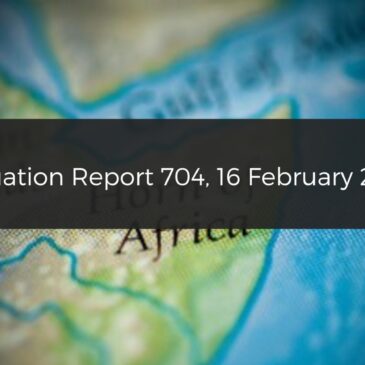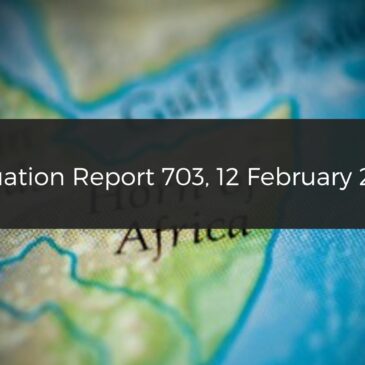Situation Report: Ethiopia-Eritrea troop buildup sparks renewed war fears; “hallmarks of genocide” found in El Fasher; Systematic human rights violations in Libya
SITUATION REPORT – HORN OF AFRICA & NEWS HIGHLIGHTS
No. 705 – 19 February 2026
Situation Report: UN accuses RSF of war crimes; 39th AU Summit in Ethiopia; South Sudan opposition group rejects Tumaini framework
posted in: Africa, African Union, Eritrea, Ethiopia, Horn of Africa region, Kenya, South Sudan, Sudan, Sudanese Armed Forces |
0
Situation Report – Horn of Africa No. 704 – 16 February 2026
Situation Report: Ethiopia accused of training RSF, the EU parliament passes a new asylum procedure, and another boat capsizes in the Mediterranean
posted in: Eritrea, Ethiopia, Refugees in the EU, Situation report, Situation Reports, Sudan, Uncategorized |
0
SITUATION REPORT – HORN OF AFRICA & NEWS HIGHLIGHTS No. 703 – 12 February 2026




